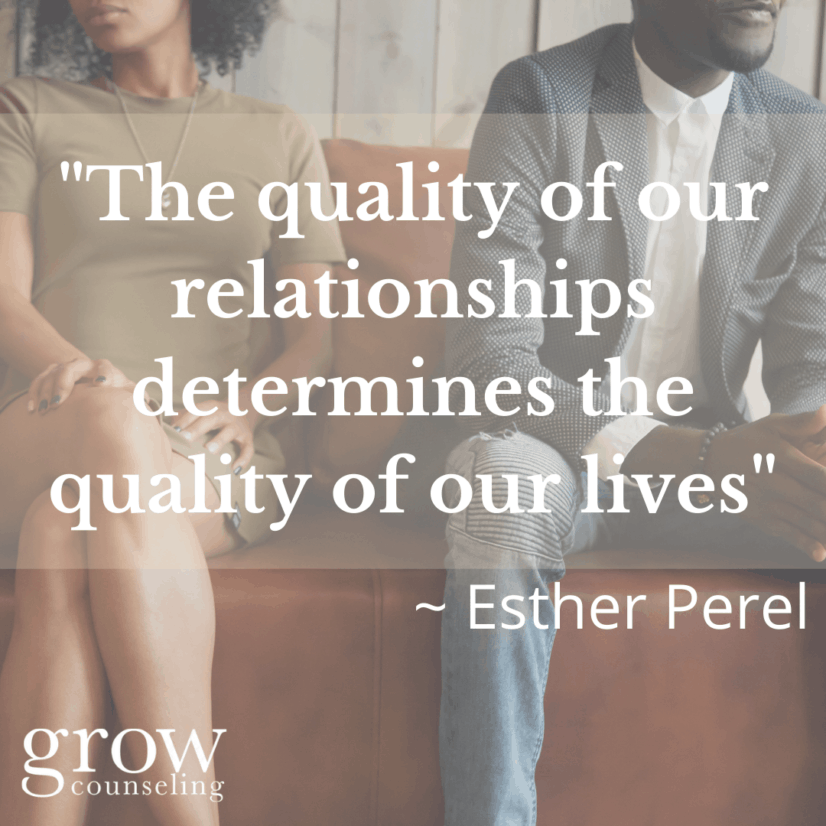Esther Perel is a psychotherapist, bestselling author, public speaker, and the host of the popular podcast Where Should We Begin? She is widely considered an expert on relationships and sexuality. She believes that human connection is transformational.
The quality of our relationships determines the quality of our lives.
~ Esther Perel
If we take her quote at face value, then we probably are aware that improving the quality of our relationships can transform the quality of our lives. In some ways, her quote seems rather obvious. It is difficult though to see how to resolve ongoing or unresolved conflicts that decrease the quality of our relationship.
Below are some short videos highlighting common arguments that come up and what hinders them from getting resolved.
I will list some examples under these patterns that may help identify the cause of the decreasing quality of your relationships. If you see yourself in these examples, then check out Esther’s explanations for what to do to begin improving your quality of life.
- Confirmation Bias is assuming your partner is doing something on purpose that they know how much it upsets you, so they must not care about you or love you.
- Assuming you have the correct measurement or perceive what is true, collecting evidence to prove your point, and disregarding any alternative evidence
- For example, if you are late, it’s situational; if your partner is late, that is a character flaw.
- Bickering is low-intensity chronic warfare continuous negative friction and keeps you and your partner constantly reacting instead of reflecting negative assumptions.
- Example: “My partner is so critical I can’t do anything right for them.”
- Ongoing hypercriticism produces the opposite effect of what we want and reminds us of our unfulfilled longings and disappointments.
- Kitchen sinking is bringing up all old grievances until you don’t even know what you are fighting about anymore.
- Focusing on all the content or what is wrong and using the past to vilify your partner’s character producing defensiveness.
- That defensiveness then keeps you stuck in a feedback loop.
If these examples describe your experience and you cannot get unstuck from these shared patterns, I would encourage you to give you and your partner some compassion. These cycles are extremely challenging to see when you are in them. Seeking a trained therapist can help you slow down to see better, halt, and repair these common conflicts.
Written by: Dustin Ellis

